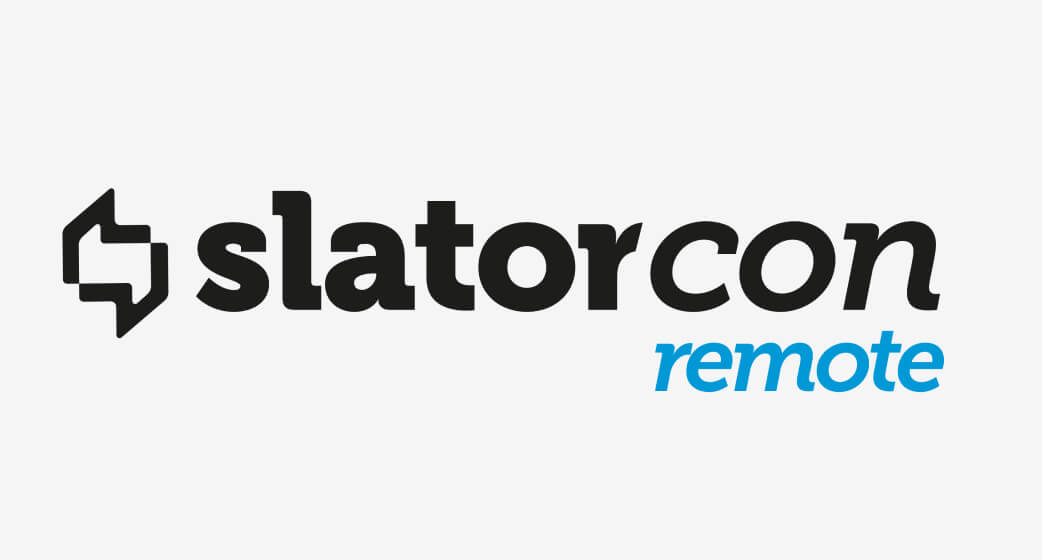In the last couple of years, we’ve seen the volume of global content skyrocket, teams scattered across the globe, and CEOs using terms like ‘massively multilingual’, and ‘AI-driven global content strategy’.
Sitting in the eye of this digital storm, loc managers are in a unique position of elevated importance to the global enterprise. Their roles are being broadly redefined by mass digitization and technological strides in creative AI — specifically, machine translation and speech synthesis.
This week, SlatorCon invited four of the industry’s leading pioneers from Esri, Gap, Intento, and Nike to uncover how exactly the role of the localization manager is evolving, and what loc managers are doing to stay ahead of the curve.
• • •
SlatorCon brings together movers and thinkers from various business contexts to analyze the transformative trends, giving companies, teams, and networks the necessary insights to succeed in the hypercompetitive language industry. In this context, Theresa Heim-Stohler (Senior Operations Manager, Localization, Nike), Mark Hjerpe (VP, Global Revenue, Intento), Pascale Tremblay (Director of Localization, Gap), and Jonathan Turpin (Localization Team Lead, Esri) came together to discuss the evolving role of the localization manager and best localization strategies for the future.
• • •
New opportunities for the localization manager
The last couple of years has been a tipping point for machine translation, and the technology is enabling loc managers to do much more within a dynamic MT landscape. This means more influence, more responsibility, and of course, more challenges. Those in the C-suite are turning to the loc managers, asking ‘how are we going to make our content relevant in the global, digital age?’. There are countless ways to communicate with customers and employees, and technology plays a huge role in making this happen.
“I’ve had two localization managers come to me saying they have just had the best reviews of their careers. This is because with massive responsibility and challenge comes great opportunity and potential for success”. (Mark Hjerpe, VP, Global Revenue, Intento)
Strategically, you constantly have to be seeking input from the various sources that are driving the technology transformation. Localization teams need to stay on top of the most effective integrations and skills to enable the new, accelerated workflows — not only for their department but for the entire organization. This means anticipating new trends and future-proofing your system to always be ahead of the pack. The localization team needs to not only be the language experts but drivers of technology and automation as well. Managers need to be able to understand and embrace this evolution in order to steer the company forward.
• • •
Accessibility and inclusivity are being driven by localization at scale
Inclusion and accessibility should never be far from a localization professional’s mind — it’s important not to leave any regional market behind as you focus on expanding and globalizing your business. In recent years, these terms have become more prevalent company-wide as they are adopted and promoted as core values for the entire global enterprise.
At the same time, innovations on the technology front are making it easier for businesses to be more inclusive. For example, this year we’ve witnessed a dramatic increase in the number of low-resource languages (typically underrepresented within the global enterprise) now supported by the most popular machine translation providers. This means greater accessibility and opportunity for potential customers and co-workers who don’t speak one of the four or five most common languages.
“As accessibility and inclusivity become a major focus, the localization teams can use these concepts as a tool to gain more visibility, because they are the enablers of that global content”. (Pascale Tremblay, Director of Localization, Gap)
When accessibility and inclusivity become core values, the localization team becomes part of the core, giving them a seat at the table to influence processes and ensure optimization. As technology creates a more homogeneous company ecosystem, localization managers will be driven more towards the center of that ecosystem, with greater company-wide influence on overall strategies.
• • •
AI tools are changing tech stacks for global businesses
In years past, most companies would focus mainly on one content type (such as general documentation) that would benefit most from machine translation. However, the application of AI and subsequent enhancement of these tools is opening up many more use cases for MT. These technological advances are coming at a time when much more content needs to be translated, and the timeframe for these projects is shrinking. It’s now necessary to implement a liberal use of MT across the board in order to keep up with greater demand.
“As the volume of content continues to grow year after year, it’s becoming increasingly difficult to keep up without using machine translation from a turn-around time and cost perspective”. (Theresa Heim-Stohler, Senior Operations Manager, Localization, Nike)
The benefits that machine translation has on the speed and quality of translation are opening up use cases from consumer-facing content to internal communications. This is bringing localization managers to the table to explore different kinds of AI services and their applications in various business contexts. Moving forward, finding and implementing AI-driven tools will only become more crucial for successful localization.
• • •
Balancing internal localization experts with Language Service Providers (LSPs)
Localization managers need to know how to automate and scale at a moment’s notice to handle dynamic influxes of content. One strategy adopted by Nike is to handle all of the strategic roles in-house on the localization team while partnering with LSPs for all of the linguistic work, as well as some project management services to keep the pipeline running. This leaves room to scale when volume growth becomes a factor, building up the team in times of need. In a similar vein, Esri has moved away from the traditional project management role, instead, spreading the project responsibility across the team. Like Nike, this provides the opportunity to scale when necessary.
“Scalability is a key element; thinking about how you can scale instead of onboarding more people to the system. As you automate, those positions become more open”. (Jonathan Turpin, Localization Team Lead, Esri)
As machine translation becomes increasingly intelligent and productive, it begins to be viewed as a ‘digital co-worker’ of sorts. Companies are using smart MT in a number of different workflows and use-cases in order to handle translation at scale through automation (rather than building human teams on the fly). Reliable AI and automation are crucial to building cross-departmental workflows that the entire enterprise can trust — and MT can be an effective first step.
• • •
The biggest challenges localization managers will face in the near future
It will always be a challenge to stay on top of the latest technology trends. In the midst of a digital transformation, you need to constantly be re-defining the roles and responsibilities throughout the team to ensure every member is adding value.
Moving away from traditional roles, however, creates opportunities for evolution into fresh definitions of these roles. Adjusting to automation can be scary — but it’s important to remember that these tools are designed to expand what you can handle under the current conditions — not to replace the human touch but to adjust to the scalability of the future.
If businesses can process only 5% of their corporate content needs with humans, AI can take care of that other 95%. Machine translation, synthetic voice, and content generators are quickly becoming a necessary part of everyday operations to grow the efficiency of the localization department.
• • •
Great advice and recommendations from the experts
SlatorCon’s panel discussion provided a terrific forum for these industry experts to offer advice and recommendations to the ever-growing field of localization managers, many of whom are entering an industry that is vastly different than it was even 5 years ago. Whatever direction we believe the industry will take, the balance between human and machine clearly continues to move toward AI-driven automation.


